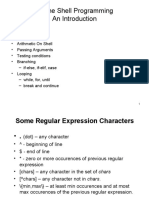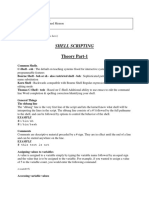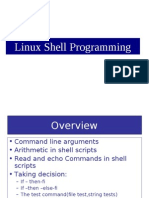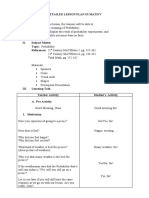0% found this document useful (0 votes)
11 views83 pagesBuoi 07 ShellScript
This document provides an introduction to shell scripting, covering basic concepts such as file manipulation, program execution, and decision-making structures like if statements and loops. It includes examples of mathematical calculations, string comparisons, and the use of arrays and functions in shell scripts. Additionally, it touches on the use of AWK for pattern matching and processing text files.
Uploaded by
huynhanthai31Copyright
© © All Rights Reserved
We take content rights seriously. If you suspect this is your content, claim it here.
Available Formats
Download as PDF, TXT or read online on Scribd
0% found this document useful (0 votes)
11 views83 pagesBuoi 07 ShellScript
This document provides an introduction to shell scripting, covering basic concepts such as file manipulation, program execution, and decision-making structures like if statements and loops. It includes examples of mathematical calculations, string comparisons, and the use of arrays and functions in shell scripts. Additionally, it touches on the use of AWK for pattern matching and processing text files.
Uploaded by
huynhanthai31Copyright
© © All Rights Reserved
We take content rights seriously. If you suspect this is your content, claim it here.
Available Formats
Download as PDF, TXT or read online on Scribd
/ 83












































































